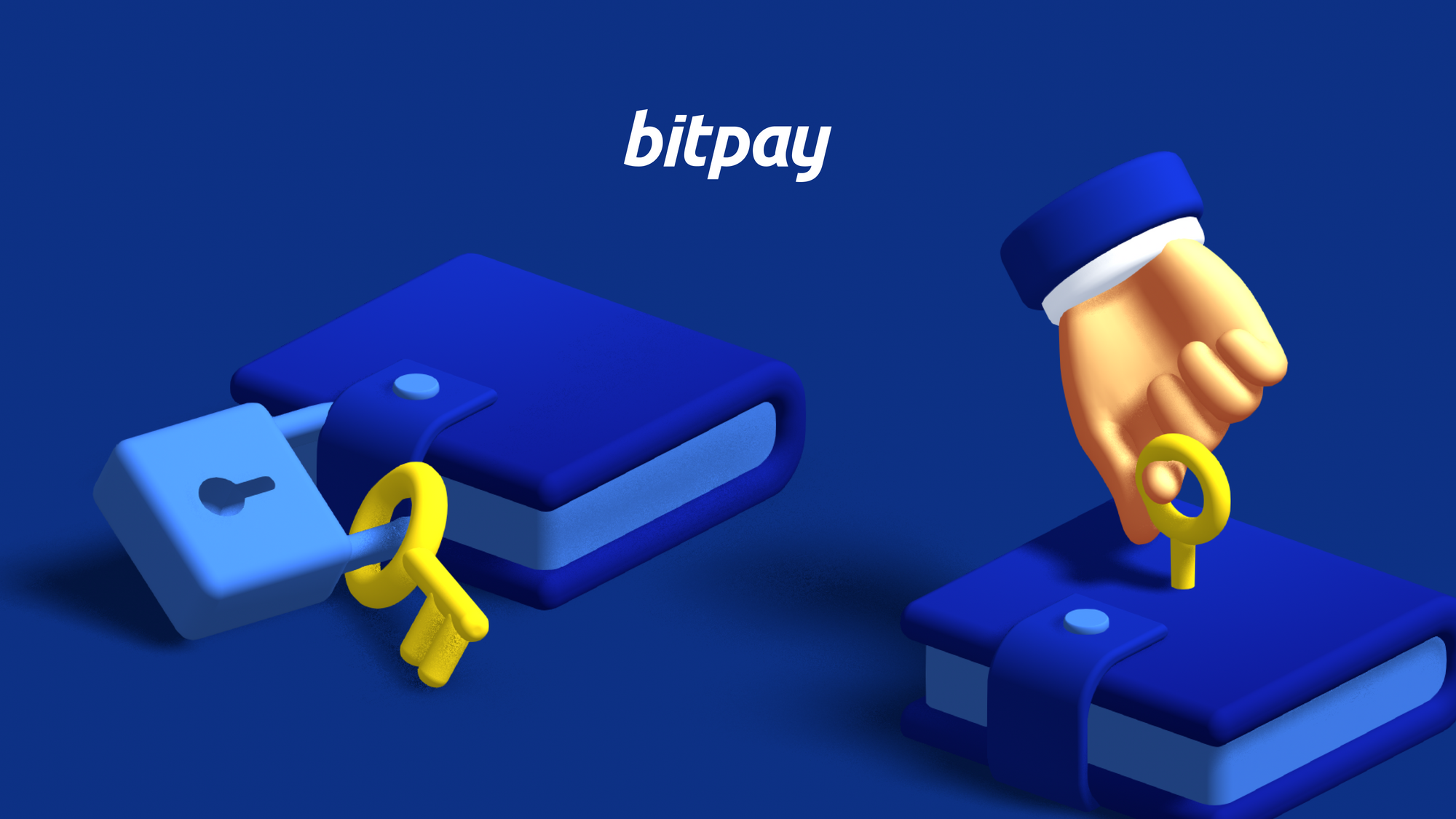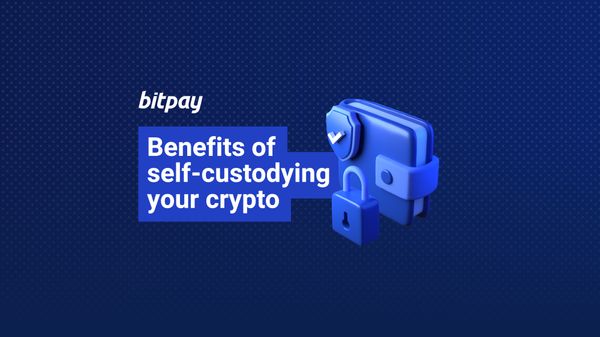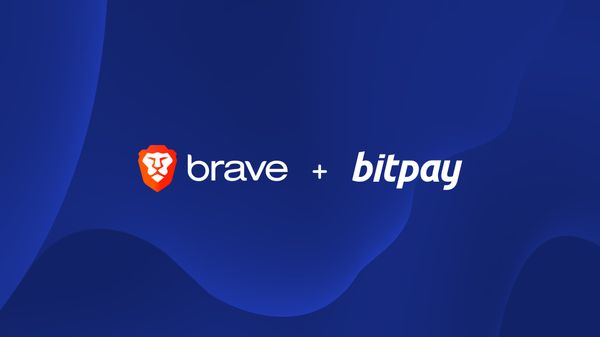There are several different types of crypto wallets to choose from, but the two main varieties can be broken out as custodial wallets and non-custodial wallets.
If you currently hold any cryptocurrency, you’ve probably already interacted with a crypto wallet before. But a crypto wallet isn’t like a regular wallet in which you’d hold your credit cards and cash. It’s a common misconception that crypto wallets store or contain a user’s cryptocurrency holdings. In fact, they are simply the tool through which a user can access their funds on the blockchain and initiate crypto transactions. We'll break down the differences between these two types of crypto wallets and which might be right for you.
In this article
- Non-custodial and custodial: who owns your keys?
- What is a custodial wallet?
- What is a non-custodial wallet?
- Which should you choose?
- FAQs about custodial and non-custodial wallets
What is the difference between a custodial and non-custodial wallet? Private keys.
When we’re talking about whether a wallet is custodial or non-custodial, what’s actually being taken custody of isn’t the funds in a crypto user’s account, it’s the private key needed to gain access their crypto assets.
A custodial wallet service (like Coinbase or Kraken) holds on to the private key, so it is responsible for safeguarding a user’s funds. A non-custodial wallet (also known as a self-custody wallet) on the other hand, gives users full control over their private key, and with it sole responsibility for protecting their holdings.
What is a custodial wallet?

Pros
- Less responsibility held by users
- Simple and easy to use for beginners
- Can reset password to regain access to digital assets
Cons
- Private keys are controlled by third party
- Custodial wallets are vulnerable to hackers
- KYC and AML verification for account creation
- Less advanced features available for experienced crypto users
Custodial wallets are nearly always web-based, and are usually provided by centralized crypto exchanges like Coinbase. Most exchanges’ interfaces are designed so users never even have to directly interact with their wallets. This user-friendliness means custodial wallets are generally preferred by newcomers, to whom the convenience factor of not having to manage their private key themselves is a big benefit.
Custodial wallets also give users peace of mind that a lost or forgotten password doesn’t mean they lose access to their funds. Most of the time providers or exchanges can simply reset your password with a few security questions. If a non-custodial wallet holder loses their private key, their funds could be unrecoverable.
With a custodial wallet, a user initiates a transaction through their platform of choice and selects a wallet address to which they’d like to send funds. The custodian of the private key, in this case a crypto exchange, is tasked with “signing” transactions using the private key to ensure they’re completed correctly. Custodial wallets are generally easy to connect to decentralized apps (dApps) and financial opportunities like staking or yield farming.
Another concern around custodial wallets is theft. Exchanges are known to be the holders of private keys, and their services are interacted with online, which makes them a continuous target for hackers. As a result, billions of dollars are lost to cybercriminals every year. You could even lose your funds to government seizure in the event an exchange that holds your private key goes bankrupt.
Using a custodial wallet requires a great deal of trust in the institution, which highlights the importance of doing your homework and only using a trusted and reliable exchange. Part of that process should involve inquiring whether they’re regulated, how they keep your private keys secure and whether they offer any insurance coverage. As a best-of-both-worlds solution, users can connect their Coinbase account in the BitPay app to retain all of the spending and crypto management perks of a non-custodial wallet but without the responsibility of self-securing their private keys.
Notable custodial services
If you prefer to keep things simple and don’t mind a third party between you and your crypto, custodial wallet provider options are plentiful. In fact, most companies providing custodial wallet services are well-known and established crypto exchanges like Coinbase, Kraken and Crypto.com.
What is a non-custodial wallet?

Pros
- You control your keys
- Fast and easy to create new wallets
- Funds won't be impacted in cases of exchange hacks
- No KYC or AML process necessary for creating/storing
- More advanced functions and features available than custodial services
Cons
- Impossible to recover digital assets if users lose private keys and/or recovery phrases
- More technical knowhow needed to use advanced features
There’s an old saying in crypto circles, “not your keys, not your crypto”, which essentially means whoever holds a private key is the only true and verifiable owner of the funds in its corresponding wallet. Some crypto users say this means custodial wallet users don’t actually “own” their crypto, since they don’t control the private key.
With non-custodial wallets, a crypto user has complete control over their private key, along with their funds. Non-custodial wallets tend to be a bit more technically complex than custodial wallets, so they’re generally more favored by experienced crypto users.
Some non-custodial wallets are browser-based, but there are a few other types available. Software wallets store and encrypt private keys on a computer hard drive. But the most secure type of all is a hardware wallet. Hardware wallets resemble a USB thumb drive, and are only online when connected to a computer or mobile device. The signing of transactions using the private key happens within the device itself and is only sent to be confirmed by the blockchain once it’s back online. This makes non-custodial hardware wallets virtually impervious to hackers.
Non-custodial wallets give users the freedom to be their own bankers, but that freedom comes with more responsibility. If you forget your account password at a custodial wallet provider, it can be reset with a few emails and maybe some identity verification. But losing your hardware wallet or your private key could leave you with no way to access your funds.
Fortunately, many non-custodial wallet providers give users a recovery phrase or “seed phrase”. This phrase consists of 12-24 random words, serving as a sort of backup password recovery method, even if a wallet is lost, deleted or destroyed. But this phrase should be guarded just as carefully as your private key, because anyone with the seed phrase will be able to access the account. What this all boils down to is the biggest downside of non-custodial wallets. If you somehow lose your private key, your wallet and your seed phrase, there will be no way to recover your funds.
Notable non-custodial wallet providers
For crypto users seeking the freedom offered by a non-custodial wallet there are a number of trusted providers in addition to BitPay Wallet. Some of these include Trust Wallet, Electrum, Exodus, Edge Wallet, Blockchain.com and MetaMask.
The best non-custodial wallet for buying, storing, swapping and spending crypto
Which should you choose?
Deciding between a non-custodial and custodial crypto wallet type is largely a matter of deciding which features in a wallet are most important to you. Custodial wallets are generally preferred by newcomers and those who value the set-and-forget nature of managing their crypto through an exchange or other centralized wallet provider. Non-custodial wallets are for those users who want to exert more control over who has access to their funds. There are pros and cons for both types of wallets, so weigh your comfort level with the features that matter most to you before deciding. You’ll also want to consider the perks each wallet offers, like crypto debit or credit cards, staking opportunities, cashback rewards and the variety of coins supported.
FAQs about non-custodial vs custodial wallets
Is BitPay a non-custodial wallet?
Yes, the BitPay Wallet is a mobile non-custodial crypto wallet which allows users to easily buy, store, swap and spend their crypto from a single easy-to-use platform. Security features like multisig and optional key encryption offer peace of mind that your digital assets are safe. BitPay Wallet makes it easy for users to manage their assets across platforms, including an easy integration to your Coinbase account.
Are Coinbase, Kraken and Crypto.com non-custodial wallets?
Most exchanges are custodial services. Some, like Coinbase, do offer separate standalone non-custodial wallet apps. The familiarity of popular exchanges could play a factor in deciding the right kind of wallet for you if you’re already comfortable using one exchange or another.
How do I create a non-custodial wallet?
Creating a new non-custodial wallet in the BitPay app is fast and easy. First be absolutely certain to create a back-up of the 12-word recovery phrase, if you lose this phrase you will not be able to access your funds in the chance that your device is lost or stolen.
- Open the BitPay app and click the wallet icon at the bottom of the screen.
- Click “Get Started” and enable the cryptocurrencies you want to create wallets for. (Don’t forget if you want to create ERC20 token wallets you will need to create an Ethereum wallet to cover gas fees.)
- Scroll down and click “Create”
- Read through the prompts and click “I Understand”
- Choose a secure password, or set one up later. Do not forget this password.


